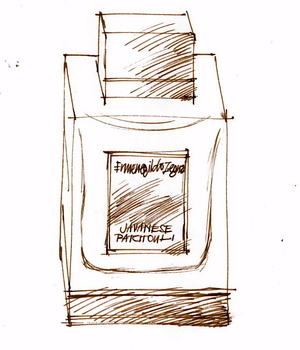Tagged With ‘Ermenegildo Zegna’
Ermenegildo Zegna
Javanese Patchouli
4 July, 2015

Patchouli – a tropical plant in the mint family – has been used as a perfume for centuries. The story goes that it was introduced to the West by Chinese and Indian traders, who used its leaves in bundles of silk as a moth repellent. The perfume oil is extracted from the leaves of several closely related species belonging to the Pogostemon family, which are grown commercially across Asia and West Africa.
For many people the scent remains indelibly associated with the hippy era, when miasmatic waves of cheap patchouli oil belched forth from bong shops and student campuses across the Western world.
But while there’s still cheap patchouli around (try visiting Camden Market over a sweaty weekend), the highest quality oils have a completely different character. Light rather than heavy, fresh rather than sweaty, top-notch patchouli is a refined, delicious fragrance, working equally well on its own or in combination with other perfume ingredients – which is why it’s so widely used in perfumery still.
There aren’t, though, that many really classy men’s perfumes in which patchouli is the dominant scent – I guess because perfume companies feel that those unfortunate hippy associations are still too strong. Givenchy Gentleman used to be a fine men’s example, but sadly it has been reformulated in recent years and isn’t a patch on its previous incarnation, so it’s been great to discover Javanese Patchouli, from the smart Italian business-suit brand Ermenegildo Zegna.
Javanese Patchouli is one of six ‘premium’ perfumes in Zegna’s ‘Essenze’ collection, which was launched in 2012. Each of the perfumes is built around a single scent, sourced from a single country or region: apart from Javanese Patchouli there’s Haitian Vetiver, Italian Bergamot, Indonesian Oud, Sicilian Mandarin and Florentine Iris.
Each 125ml bottle in the Essenze range currently (in mid-2014) costs £140, so they’re certainly not cheap; by comparison a 100ml bottle of Zegna’s Uomo scent costs £60, less than half as much. But – and I hope by now I don’t automatically associate quality with price – the two I’ve tried so far do feel luxurious and refined.
Javanese Patchouli smells, to me, like nothing else, in the sense that all I smell is patchouli, of the highest quality. Given that it’s such a lovely, gentle smell that’s absolutely fine with me, though apparently its ingredients also include soft, faintly chocolatey tonka bean, cedar wood, bergamot and pink pepper. I can’t smell any of those, but perhaps my nose is simply not sensitive enough; if they help make this perfume smell as good as it does, though, I’m perfectly happy that they’re there. I only wish I knew who the perfumer was so I could congratulate her or him.
The bottle (which after all is part of what you’re buying) is well made too, in heavy glass with a black magnetic cap that clonks satisfyingly in place, like the door of an expensive limousine. It’s not, perhaps, quite as sophisticated a design as comparable ‘premium’ perfumes from Dior or Chanel, but at least it’s not hideous or tacky, which all too many contemporary perfume bottles are. And the box it comes in conceals some rather clever cardboard technology, which locks the bottle snugly into place in an oddly pleasing way.
My only criticism, I suppose, is that I can’t smell it on my skin for very long. I was going to say that’s a bit of a swizz, since for £140 you’d hope to get something that didn’t disappear so fast, but I’m told that other people can smell it hours after I can, so at least someone else will get the benefit of your investment.